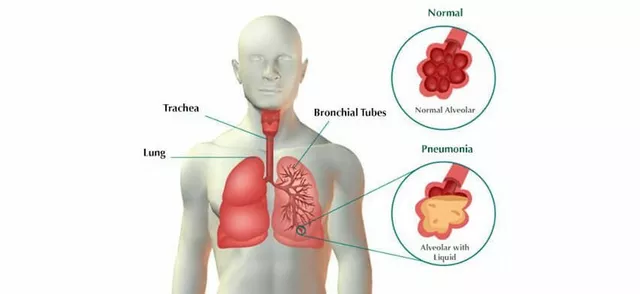Introduction to Enteric Infections
As a health-conscious individual, I have always been intrigued by the various factors that affect our overall well-being. One such area of interest is enteric infections. These infections primarily target the gastrointestinal tract, causing a range of symptoms and complications. In this article, we will delve into the causes, symptoms, and preventive measures for enteric infections. So, let's embark on this journey together and enhance our understanding of these infections.
Causes of Enteric Infections: Unveiling the Culprits
Enteric infections are caused by a variety of pathogens, including bacteria, viruses, and parasites. These pathogens can enter our bodies through contaminated food, water, or contact with infected individuals. Some of the most common causes of enteric infections include:
- Salmonella: A type of bacteria often found in raw or undercooked poultry, eggs, and milk products.
- Escherichia coli (E. coli): A common bacteria found in the intestines of humans and animals, which can cause severe diarrhea when ingested through contaminated food or water.
- Norovirus: A highly contagious virus responsible for the majority of viral gastroenteritis cases worldwide.
- Rotavirus: A viral infection that primarily affects infants and young children, causing severe diarrhea and dehydration.
- Giardia: A parasitic infection that can be contracted through contaminated water, food, or contact with an infected person.
Understanding the causes of enteric infections is crucial in preventing and managing these conditions effectively.
Recognizing the Symptoms: What to Look Out For
Enteric infections can manifest in various ways, depending on the specific pathogen involved. However, there are some common symptoms that you should be aware of, which include:
- Diarrhea
- Abdominal pain and cramping
- Nausea and vomiting
- Fever
- Loss of appetite
- Dehydration
- Fatigue
These symptoms can range from mild to severe and may last anywhere from a few days to several weeks. It is essential to consult a healthcare professional if you experience any of these symptoms, especially if they persist or worsen over time.
Preventing Enteric Infections: Hygiene and Safe Food Practices
One of the most effective ways to prevent enteric infections is by maintaining proper hygiene and following safe food practices. Some essential steps to consider include:
- Washing your hands thoroughly with soap and water before handling food and after using the restroom.
- Cooking meat and poultry at the recommended temperatures to kill any harmful bacteria present.
- Refrigerating perishable food items promptly to prevent bacterial growth.
- Avoiding cross-contamination by using separate cutting boards for raw and cooked foods.
- Drinking clean, treated water and avoiding tap water in areas with a high risk of contamination.
By adhering to these guidelines, you can significantly reduce your risk of contracting enteric infections and safeguard your health.
Vaccination: A Vital Shield Against Enteric Infections
Another crucial preventive measure against enteric infections is vaccination. Vaccines are available for some of the most common enteric pathogens, such as rotavirus and typhoid fever. These vaccines can help protect you and your loved ones, especially young children and the elderly, who are more susceptible to these infections.
It is essential to consult your healthcare provider to determine which vaccinations are recommended for you and your family, based on your individual needs and travel plans. Remember, vaccination is not only a personal responsibility but also a collective effort to protect our communities against the spread of infectious diseases.
Managing Enteric Infections: The Road to Recovery
If you or a loved one are diagnosed with an enteric infection, it is crucial to follow your healthcare provider's advice and prescribed treatment plan. This may include:
- Staying hydrated by drinking plenty of water, oral rehydration solutions, or electrolyte-rich beverages.
- Getting enough rest to help your body recover.
- Eating small, frequent meals that are easy to digest, such as rice, bananas, and applesauce.
- Taking over-the-counter medications to alleviate symptoms, such as fever and diarrhea (as advised by your healthcare provider).
- Following any prescribed antibiotic or antiparasitic treatments, as necessary.
By adhering to these recommendations, you can facilitate a smooth recovery and prevent complications associated with enteric infections.
Conclusion: Knowledge is Power
In conclusion, understanding the causes, symptoms, and preventive measures for enteric infections is vital in maintaining our overall health and well-being. By staying informed and adopting healthy habits, we can protect ourselves and our loved ones from these potentially debilitating conditions. So, let's continue to educate ourselves and take the necessary steps towards a healthier future.









